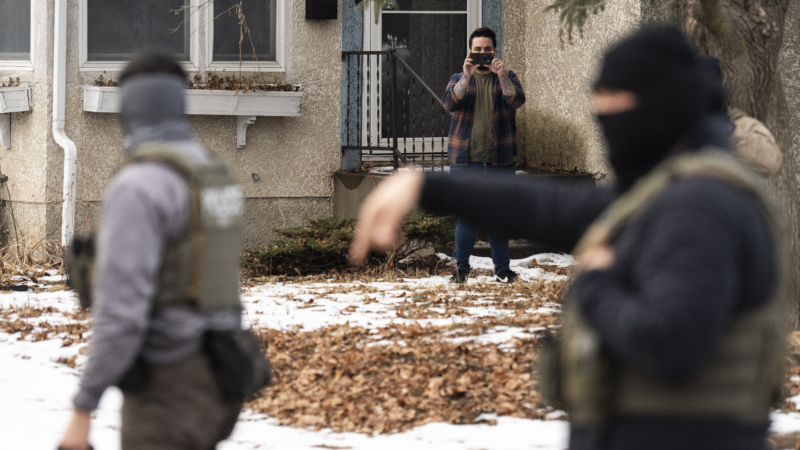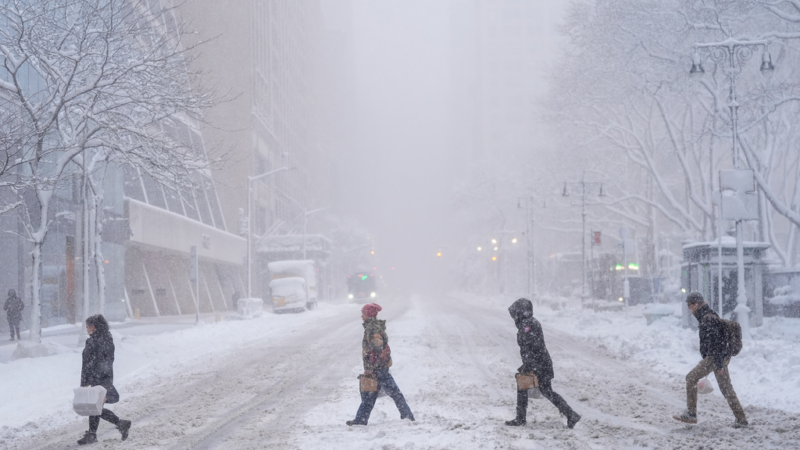Alabama COVID-19 Hospitalizations Hit Record High
Alabama’s coronavirus numbers have hit a new high.
The Alabama Department of Public Health reports 647 people were hospitalized for COVID-19 Wednesday, the most since the pandemic began. There were also 849 new cases, the highest in a single day. That spike concerns University of Alabama at Birmingham healthcare epidemiologist Dr. Rachael Lee. She spoke with WBHM’s Andrew Yeager.
This interview has been condensed and edited for clarity.
What’s behind the increase in coronavirus cases and hospitalizations:
If you look at the timing, it looks like this may be related to Memorial Day. So by Memorial Day we were all completely opened up and we had a lot of fatigue in terms of being under quarantine. And so once the state opened up and loosened a lot the restrictions, we got together, had vacations, restaurants have opened up, bars have opened up. Because of that close connection with other people, being within six feet and potentially not wearing masks … that may be driving our numbers and our cases.
Hospital capacity limited:
As a state we still do have some capacity. But if you think about where the issues are, so for instance, in Montgomery with their capacity, it’s very difficult to take care of those large number of patients. One of the things that we would be concerned about would be your ventilators … At UAB we have capacity to take care of more patients with COVID-19, but that also requires coordination. We’d need to transfer patients from other areas to be able to care for them. At the current rate that we’re seeing an increase in number of cases, we will not have enough ventilators to care for the people that need ventilators. We will not have enough hospitalized beds, and that can lead to an increase in mortality.
Why the hospitalization rate is a reliable indicator:
The hospitalization rate allows us to realize that it’s more than just an increase in our testing capacity. So as we’ve seen an increase in the number of cases, I’ve heard pretty consistently, ‘Well, we’re also doing more tests and maybe that’s why we’re identifying more people.’ But if you are identifying more people, then potentially the hospitalization numbers shouldn’t really go up. But as we’ve seen the hospitalizations are consistently going up and that’s where we’re concerned that we can’t take care of these patients in the way that we would want to.
The FDA creates a quicker path for gene therapies
The Food and Drug Administration aims to evaluate treatments for rare diseases based on plausible evidence that they would work — without requiring a clinical trial first.
BAFTAs apologize after guest with Tourette syndrome uses racial slur during ceremony
A man with Tourette syndrome shouted a racial slur and other offensive remarks during the BAFTA awards ceremony Sunday. The BBC did not edit out his outbursts in its delayed broadcast.
‘Everything was in pieces:’ Lindsey Vonn describes grueling surgery on broken leg
In a recent video, the Olympic skier credits her surgeon with saving her leg from potential amputation.
A new lawsuit alleges DHS illegally tracked and intimidated observers
Observers watching federal immigration enforcement in Maine who were told by agents they were "domestic terrorists" and would be added to a "database" or "watchlist" are now part of a new federal class action lawsuit.
Kate Hudson on regret, rom-coms and finding a role that hits all the notes
Hudson always wanted to sing, but feared it would derail her acting career. Now she's up for an Oscar for her portrayal of a hairdresser who performs in a Neil Diamond tribute band in Song Sung Blue.
A powerful winter storm is roiling travel across the northeastern U.S.
Forecasters called travel conditions "extremely treacherous" and "nearly impossible" in areas hit hardest by the storm, and air and train traffic is at a standstill in many parts of the region.







